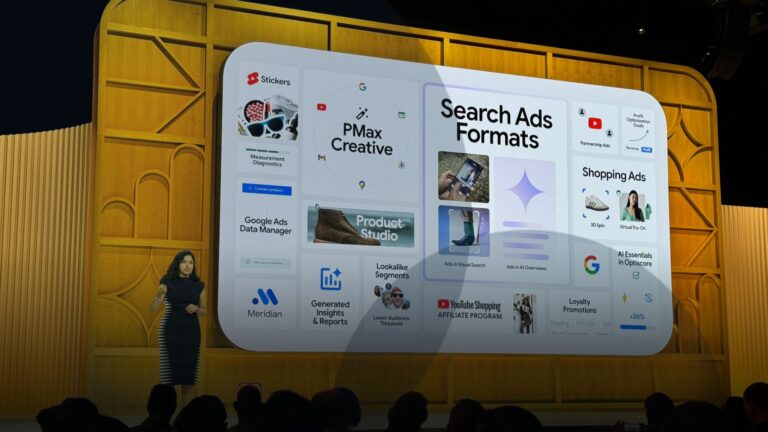
Abby Webb
Head of Search & Content
Abby heads up our SEO and content campaigns, with a strong background in copywriting, content and paid search marketing.

Google’s AI search demands higher standards for YMYL content. Learn how to keep your financial, legal or health advice visible, trusted and compliant.
If your business offers financial advice, legal insight, or health-related services, your website almost certainly falls under Google’s “Your Money or Your Life” (YMYL) category. That means that Google holds your content to a higher standard than other sites – prioritising accuracy, trustworthiness, and evidence of real-world expertise to protect users from misleading or harmful information.
Without meeting those requirements, your content is far less likely to appear in search results. In short, your website content needs to meet a higher standard for it to be visible to your audience.
That’s nothing new. What is new – and more pressing than ever – is how artificial intelligence is changing how your content is created, curated, found, and featured.
Google’s AI Overviews now appear in nearly half of all user searches – and conversational tools like AI Mode are reshaping how users interact with search – meaning that YMYL content is under more scrutiny than ever before.
So, to stay visible in the AI search marketing landscape, you’ll need reassess how your content is written, reviewed, and presented. Not just for your audience or Google, but for the AI engines who are also acting as gatekeepers to your visibility.
Google’s AI Overviews represent a shift from keyword-led search to AI-assisted answers. These summaries pull from what Google considers the most helpful, relevant and trustworthy sources – without requiring the user to click through to the source site itself.
That makes demonstrating trust and authority vital. For YMYL content, they’re the criteria AI uses to decide whether your advice is worth repeating – or quietly skipped.
It’s not just Google, either. Tools like ChatGPT, Gemini, and Perplexity are now trained to avoid surfacing anything that could cause harm, particularly in finance, health, and legal contexts. That means:
You can read more about AI Overviews, AI Mode and their impact on search marketing here.
There’s plenty of talk about AI tools supporting content creation. Yes, AI can absolutely help with research or early drafting – as long as it’s used responsibly. But for YMYL content, AI should never be your main author.
That’s not just a Google best practice – it’s a trust issue. If your content covers pensions, tax planning, estate law or anything else that affects someone’s finances or wellbeing, it needs to be written (or at the very least reviewed or edited) by someone qualified and accountable.
What this looks like in practice:
If you’re publishing YMYL content without a clear author or without editorial controls, you’re asking Google’s AI – and your potential clients – to take a leap of faith. More likely than not, neither of them will.
In traditional SEO, strong metadata, backlinks, and keywords might have been enough to secure visibility. But in the AI-first world, structure and trust signals matter more than ever.
Google’s AI isn’t just pulling content from a single paragraph. It’s looking across your whole site to determine:
That’s why even brilliant content can get ignored if it sits on a site with no clear ownership, outdated information, or a lack of transparency.
To improve your chances of being featured in AI Overviews, focus on the basics:
Google’s E-E-A-T principles (Experience, Expertise, Authoritativeness, Trustworthiness) haven’t changed. If anything, for businesses within financial services or health, they’ve become more important than ever.
Search today is about instant answers. And if your content is helping provide those answers safely and clearly, that’s a win – even if it doesn’t always lead to a click. (Yes, “zero-click search” is very real now – and appearing in an AI Overview can still be a powerful brand visibility opportunity.)
So what can you do?
For a step-by-step guide to aligning your financial or professional services content with E-E-A-T and YMYL principles, this deep dive breaks it down.
If your organisation is creating or updating YMYL content, now’s the time to adapt. These AI-driven changes aren’t going away – and for brands that rely on digital visibility, ignoring them could mean disappearing from the conversation altogether.
Start here:
Need a hand reviewing or rewriting your content for this new landscape? We’re always happy to help. Email me at [email protected].

Head of Search & Content
Abby heads up our SEO and content campaigns, with a strong background in copywriting, content and paid search marketing.
View my other articles and opinion pieces below
At Google Marketing Live 2025, the focus was clear: AI is already changing the way people search, and as a result, it’s changing what brands need to do to show up in search results. Here’s what you need to know – and what it means for your marketing.

Love it or hate it, everyone’s seen it. Google’s AI Overviews are changing the way your search results appear. Now, AI-generated summaries will often answer user questions before the usual list of site links we’ve come to expect. In fact, 47% of Google Search results now include an AI Overview – at least, according to AI […]

This short guide will teach you how to track your marketing campaigns using UTM parameters. Also referred to as a custom URL, a UTM tag is a customised snippet of text (called a parameter) that is added at the end of a website address. This UTM tag allows you to track and identify the traffic […]

When designing their website, some companies don’t give their homepage much thought. After all, shouldn’t it be the easiest page to design? You’ve got a blank slate – you can put anything and everything about your business on there. What could go wrong? But bad website homepage design is everywhere – and it has a […]
